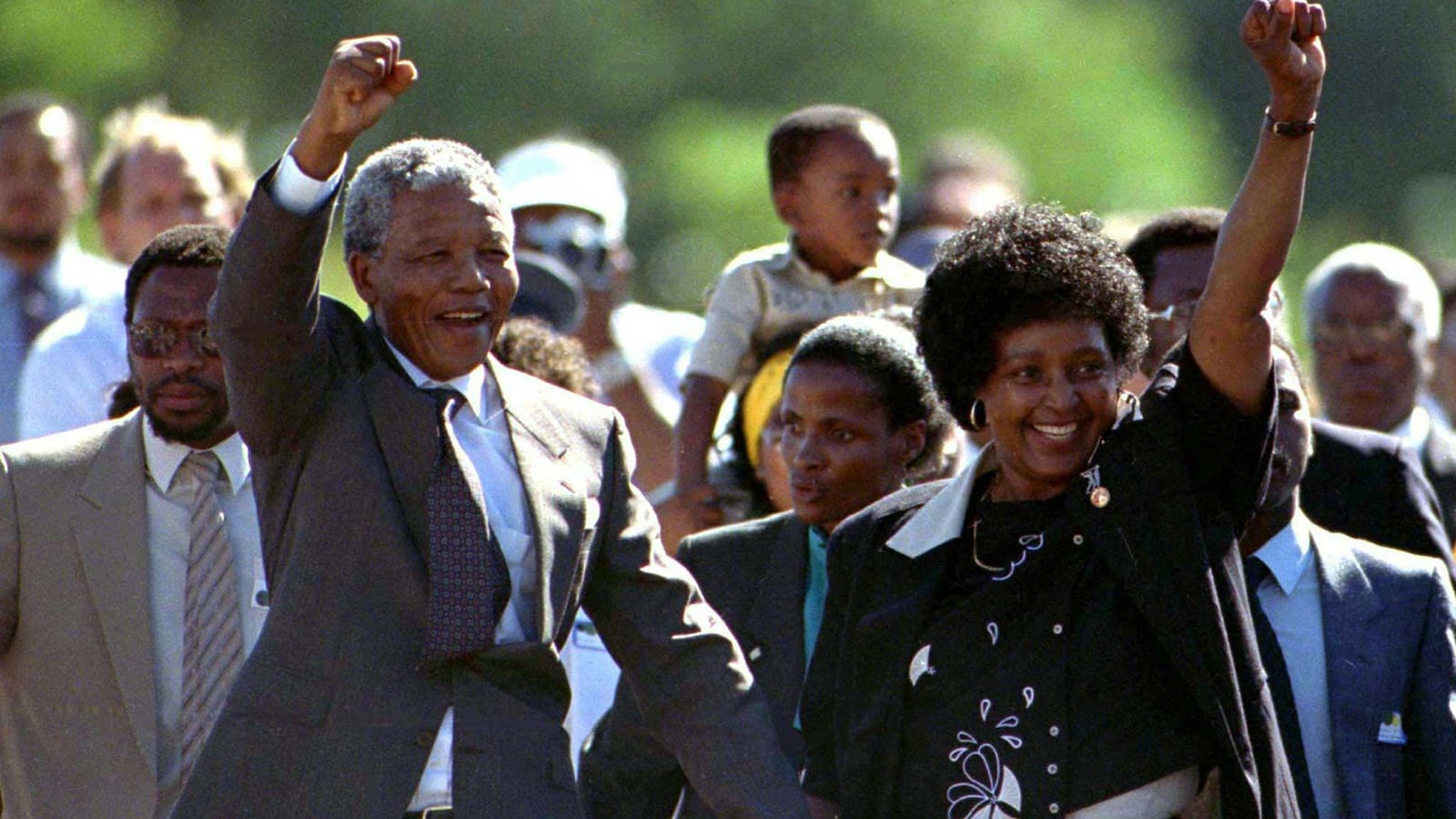Now that he’s dead, and can cause no more trouble, Nelson Mandela is being mourned across the ideological spectrum as a saint. But not long ago, in Washington’s highest circles, he was considered an enemy of the United States. Unless we remember why, we won’t truly honor his legacy.

In the 1980s, Ronald Reagan placed Mandela’s African National Congress on America’s official list of “terrorist” groups. In 1985, then-Congressman Dick Cheney voted against a resolution urging that he be released from jail. In 2004, after Mandela criticized the Iraq War, an article in National Review said his “vicious anti-Americanism and support for Saddam Hussein should come as no surprise, given his longstanding dedication to communism and praise for terrorists.” As late as 2008, the ANC remained on America’s terrorism watch list, thus requiring the 89-year-old Mandela to receive a special waiver from the secretary of State to visit the U.S.
From their perspective, Mandela’s critics were right to distrust him. They called him a “terrorist” because he had waged armed resistance to apartheid. They called him a “communist” because the Soviet Union was the ANC’s chief external benefactor and the South African Communist Party was among its closest domestic allies. More fundamentally, what Mandela’s American detractors understood is that he considered himself an opponent, not an ally, of American power. And that’s exactly what Mandela’s American admirers must remember now.
We must remember it because in Washington today, politicians and pundits breezily describe the Cold War as a struggle between the forces of freedom, backed by the U.S., and the forces of tyranny, backed by the USSR. In some places—Germany, Eastern Europe, eventually Korea—that was largely true. But in South Africa, the Cold War was something utterly different. In South Africa, for decades, American presidents backed apartheid in the name of anti-communism. Indeed, the language of the Cold War proved so morally corrupting that in 1981, Reagan, without irony, called South Africa’s monstrous regime “essential to the free world.”.
In South Africa, it was the Soviet bloc—the same communist governments that were brutally repressing their own people—that helped the ANC fight apartheid. In the 1980s, they were joined by an American and European anti-apartheid movement willing to overlook the ANC’s communist ties because they refused to see South Africa’s freedom struggle through a Cold War lens. At a time when men like Reagan and Cheney were insisting that the most important thing about Mandela was where he stood in the standoff between Washington and Moscow, millions of citizens across the West insisted that the ANC could be Soviet-backed, communist-influenced, and still lead a movement for freedom.
They were right. When it came to other countries, Mandela’s leftist ties did sometimes blind him to communism’s crimes. In 1991, for instance, he called Fidel Castro “a source of inspiration to all freedom-loving people.” But at home, where it mattered most, the ANC was a genuine, multiracial movement for democracy. And so the Americans who best championed South African freedom were the ones who didn’t view freedom as synonymous with the geopolitical interests of the United States.
Therein lies Mandela’s real lesson for Americans today. The Cold War is over, but mini-Cold Wars have followed. And once again, American elites, especially on the right, have a bad habit of using “freedom” as a euphemism for whatever serves American power. Thus, American politicians frequently suggest that by impoverishing the people of Iran with ever-harsher economic sanctions, and threatening to bomb them, we are promoting their freedom, even though the people risking their life for democracy in Iran—people like dissident journalist Akbar Ganji and Nobel Prize winner Shirin Ebadi—passionately disagree.
Mandela challenged that. Like Martin Luther King, who publicly repudiated Lyndon Johnson’s claim that Vietnam was a war for democracy, Mandela rejected George W. Bush’s idealistic rationalizations of the Iraq War. In 2003, when Bush was promising to liberate Iraq’s people, Mandela said, “All that he wants is Iraqi oil.” When Bush declared Iraq’s alleged pursuit of nuclear weapons a threat to the planet, Mandela had the bad manners to remind Bush that the only country to have actually used nukes was the United States. Mandela’s message to America’s leaders, born from firsthand experience, was clear: Don’t pretend you are pure.
As with King, it is this subversive aspect of Mandela’s legacy that is most in danger of being erased as he enters America’s pantheon of sanitized moral icons. But it is precisely the aspect that Americans most badly need. American power and human freedom are two very different things. Sometimes they intersect; sometimes they do not. Walking in Nelson Mandela’s footsteps requires being able to tell the difference.






